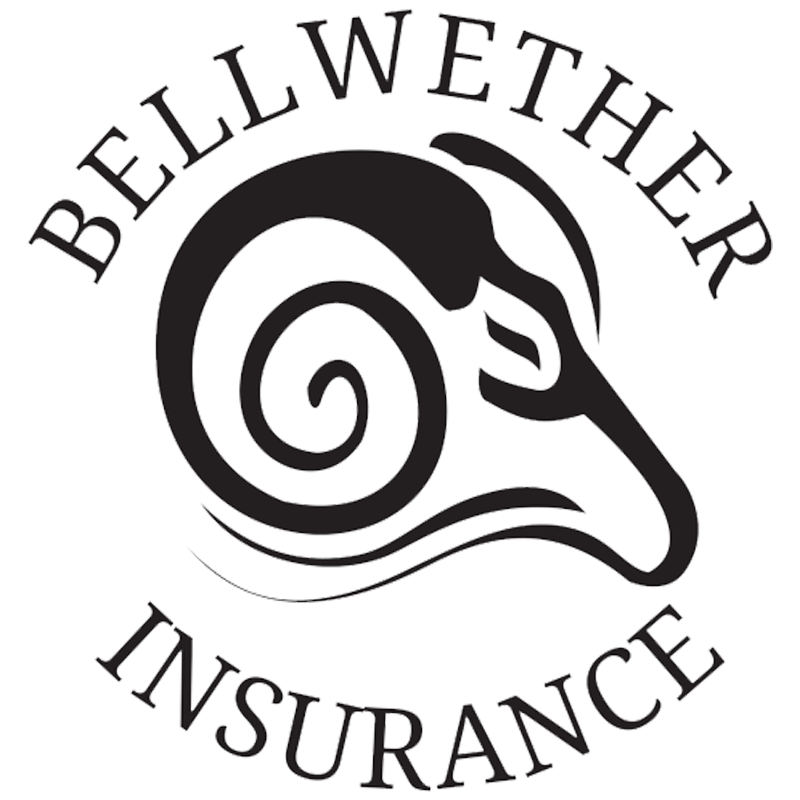Ohio ENT Business Insurance

Index
Contact Us
Phone
216-600-2828
Location
100 N. Center Street PO Box 627 LaGrange, OH 44050
Operating an Ear, Nose, and Throat (ENT) practice in Ohio comes with its unique set of challenges and responsibilities. One of the most critical aspects of running a successful medical practice is ensuring that it is adequately protected through comprehensive business insurance. This article will provide an in-depth look at the various types of insurance available for ENT practices in Ohio, covering essential aspects that practitioners need to consider.
Understanding Business Insurance for ENT Practices
Business insurance is designed to protect medical practitioners from various risks associated with running a healthcare facility. For ENT specialists, this means safeguarding against potential liabilities that could arise from patient care, property damage, or other unforeseen circumstances.
Why Insurance is Essential for ENT Practices
In the healthcare industry, the stakes are high. A single malpractice claim can have devastating financial implications for a practice. Insurance serves as a safety net, providing financial support in the event of lawsuits, property damage, or other liabilities. Furthermore, having adequate coverage can enhance the credibility of a practice, reassuring patients that their health is in safe hands. This assurance is particularly important in fields like ENT, where practitioners often deal with delicate procedures and complex patient needs. Patients are more likely to choose a practice that demonstrates a commitment to risk management through comprehensive insurance coverage.
Moreover, the nature of ENT practice often involves specialized equipment and facilities that can be costly to replace or repair. Insurance not only protects against malpractice claims but also covers the financial burden of equipment failure or damage due to natural disasters. This dual protection ensures that ENT specialists can focus on providing quality care without the constant worry of financial repercussions from unexpected events.
Types of Insurance Coverage for ENT Practices
ENT practices in Ohio should consider several types of insurance coverage to ensure comprehensive protection. These include general liability insurance, professional liability insurance, property insurance, and workers' compensation insurance. Each type serves a specific purpose and addresses different risks associated with operating a medical practice. General liability insurance protects against claims of bodily injury or property damage that may occur on the premises, while professional liability insurance specifically covers claims related to negligence in patient care.
Property insurance is crucial for covering the physical assets of the practice, including medical equipment, office furniture, and the facility itself. In the event of theft, fire, or other disasters, this type of insurance can significantly mitigate financial loss. Workers' compensation insurance is also essential, as it provides coverage for employees who may suffer work-related injuries or illnesses. This not only helps protect the practice from potential lawsuits but also fosters a safer work environment, encouraging staff to prioritize safety and well-being while attending to patients.

Key Types of Insurance for Ohio ENT Practices
Understanding the specific types of insurance available is crucial for ENT practitioners. Each type of insurance plays a vital role in protecting the practice from various risks.
General Liability Insurance
General liability insurance is fundamental for any business, including medical practices. This coverage protects against claims of bodily injury, property damage, and personal injury that may occur on the practice's premises. For example, if a patient slips and falls in the waiting room, this insurance can help cover medical expenses and legal fees associated with the claim. Additionally, it can also cover incidents that occur off-site, such as if a staff member accidentally damages a patient's property during a home visit. Having this insurance not only safeguards the practice financially but also enhances its credibility, reassuring patients that the practice is prepared for unforeseen events.
Professional Liability Insurance
Also known as malpractice insurance, professional liability insurance is essential for ENT specialists. This coverage protects against claims of negligence, errors, or omissions in the provision of medical services. Given the nature of medical practice, where outcomes can be unpredictable, having this insurance is crucial for safeguarding against potential lawsuits. Moreover, the stakes are particularly high in ENT practices, where misdiagnosis or improper treatment can lead to significant complications. This insurance not only covers legal defense costs but can also provide access to expert legal counsel, which is invaluable in navigating the complexities of medical malpractice claims.
Property Insurance
Property insurance covers damage to the physical assets of the practice, including medical equipment, office furniture, and the building itself. Whether due to fire, theft, or natural disasters, property insurance ensures that the practice can recover and continue operations with minimal disruption. For ENT practices, where specialized equipment is often required, this coverage is particularly important. Additionally, many practices rely on advanced technology for diagnostics and treatment, such as endoscopes and audiology equipment, which can be costly to replace. Ensuring that these assets are protected not only helps maintain continuity of care for patients but also supports the financial stability of the practice in the face of unexpected events. Furthermore, some property insurance policies may also include coverage for loss of income during periods when the practice is unable to operate, providing an additional layer of financial security.
In addition to the primary types of insurance, ENT practices may also benefit from additional coverage options tailored to their specific needs.
Workers' Compensation Insurance
Workers' compensation insurance is mandatory in Ohio for businesses with employees. This insurance provides coverage for medical expenses and lost wages for employees who are injured on the job. For ENT practices, where staff may be exposed to various risks, having this insurance is essential for protecting both employees and the practice itself. In addition to covering immediate medical costs, this insurance can also help facilitate rehabilitation services, ensuring that employees can return to work safely and efficiently. Moreover, establishing a culture of safety and compliance within the practice can further reduce the likelihood of workplace injuries, making it a win-win for both employees and management.
Business Interruption Insurance
Business interruption insurance covers lost income and operating expenses if a practice is forced to close temporarily due to a covered event, such as a natural disaster. This type of insurance can be invaluable for ENT practices, ensuring that they can maintain financial stability even during challenging times. Additionally, this coverage can help offset the costs of relocating to a temporary facility or investing in repairs, allowing the practice to resume operations as quickly as possible. By having a solid business continuity plan in place, ENT practices can not only safeguard their financial health but also reassure patients that they will continue to receive care, even in the face of unexpected disruptions.
Cyber Liability Insurance
As healthcare practices increasingly rely on digital records and online systems, cyber liability insurance has become crucial. This coverage protects against data breaches and cyber-attacks that could compromise patient information. Given the sensitive nature of medical records, having robust cyber liability insurance is essential for any modern ENT practice. Furthermore, many policies also provide access to resources that can help practices improve their cybersecurity measures, such as employee training programs and risk assessments. As cyber threats continue to evolve, investing in this type of insurance not only protects the practice from financial losses but also enhances the overall trust and confidence patients place in their healthcare providers.
Factors to Consider When Choosing Insurance
Choosing the right insurance for an ENT practice involves careful consideration of various factors. Each practice is unique, and understanding specific needs is critical to obtaining the appropriate coverage.
Assessing Risk Exposure
Before selecting insurance, it is vital to assess the specific risks associated with the practice. This includes evaluating the types of procedures performed, the demographics of the patient population, and the overall operating environment. By understanding these factors, practitioners can better determine the level of coverage required. For instance, practices that perform a higher volume of surgical procedures may face greater liability risks compared to those focused primarily on outpatient consultations. Additionally, understanding the local healthcare landscape, including the prevalence of malpractice claims in the area, can further inform the risk assessment process.
Evaluating Coverage Limits
When choosing insurance policies, it is essential to evaluate coverage limits. Practitioners should ensure that the limits are sufficient to cover potential claims and losses. This may involve consulting with an insurance broker or advisor to understand the average costs associated with claims in the medical field. Furthermore, practitioners should consider the potential for catastrophic events that could lead to significant financial repercussions. For example, if a major lawsuit arises from a procedure gone wrong, having higher coverage limits could mean the difference between financial stability and crippling debt. It’s also important to be aware of any exclusions or limitations within the policy that could affect coverage in specific scenarios.
Comparing Insurance Providers
Not all insurance providers offer the same level of service or coverage options. It is advisable to compare multiple providers to find the best fit for an ENT practice. Factors to consider include the provider's reputation, customer service, and claims handling process. Reading reviews and seeking recommendations can also help in making an informed decision. Additionally, practitioners should inquire about the insurer's experience with medical professionals, particularly in the ENT specialty, as this can impact the quality of coverage and support provided. Engaging with peers in the field to discuss their experiences with different insurers can also provide valuable insights into which providers are most reliable and responsive when issues arise.

The Importance of Regular Insurance Reviews
As an ENT practice evolves, so do its insurance needs. Regularly reviewing insurance policies is crucial to ensure that coverage remains adequate and relevant.
Adapting to Changes in Practice
Changes in the scope of practice, such as adding new services or expanding the practice, can impact insurance needs. Regular reviews allow practitioners to adjust their coverage accordingly, ensuring continued protection against emerging risks. For instance, if an ENT practice decides to incorporate new technologies or procedures, such as minimally invasive surgeries or advanced diagnostic tools, the associated risks may require additional coverage. This proactive approach helps safeguard the practice from potential liabilities that could arise from these new services.
Staying Informed About Industry Trends
The healthcare landscape is continually evolving, with new regulations and standards emerging regularly. Staying informed about industry trends can help ENT practices anticipate changes that may necessitate adjustments in their insurance coverage. Engaging with professional organizations and attending relevant conferences can provide valuable insights. Additionally, subscribing to industry publications and participating in online forums can keep practitioners abreast of best practices and emerging risks, allowing them to make informed decisions about their insurance needs. This knowledge not only aids in compliance but also enhances the overall quality of care provided to patients.
Consulting with Insurance Experts
Consulting with insurance experts can provide additional guidance on navigating the complexities of business insurance. Insurance brokers specializing in healthcare can offer tailored advice, helping practitioners find the best coverage options for their specific needs. Furthermore, these experts can assist in understanding the nuances of various policies, including liability coverage, malpractice insurance, and property insurance. By leveraging their expertise, ENT practices can ensure they are not only compliant with legal requirements but also adequately protected against unforeseen events that could disrupt their operations.
Moreover, regular consultations with insurance professionals can lead to cost savings. As the market evolves, new insurance products may become available that offer better coverage at a lower cost. By keeping an open line of communication with brokers, practices can take advantage of these opportunities, optimizing their insurance portfolio while maintaining robust protection. This ongoing relationship can also facilitate quicker responses to claims and issues, ensuring that practices can focus on providing high-quality care without the burden of financial uncertainty.
Conclusion
In conclusion, securing the right business insurance is a critical component of operating a successful ENT practice in Ohio. With various types of coverage available, practitioners must assess their unique needs and risks to ensure comprehensive protection. Regular reviews and consultations with insurance experts can further enhance the practice's resilience against potential liabilities.
By prioritizing insurance coverage, ENT specialists can focus on what matters most—providing high-quality care to their patients while safeguarding their practice against unforeseen challenges.


